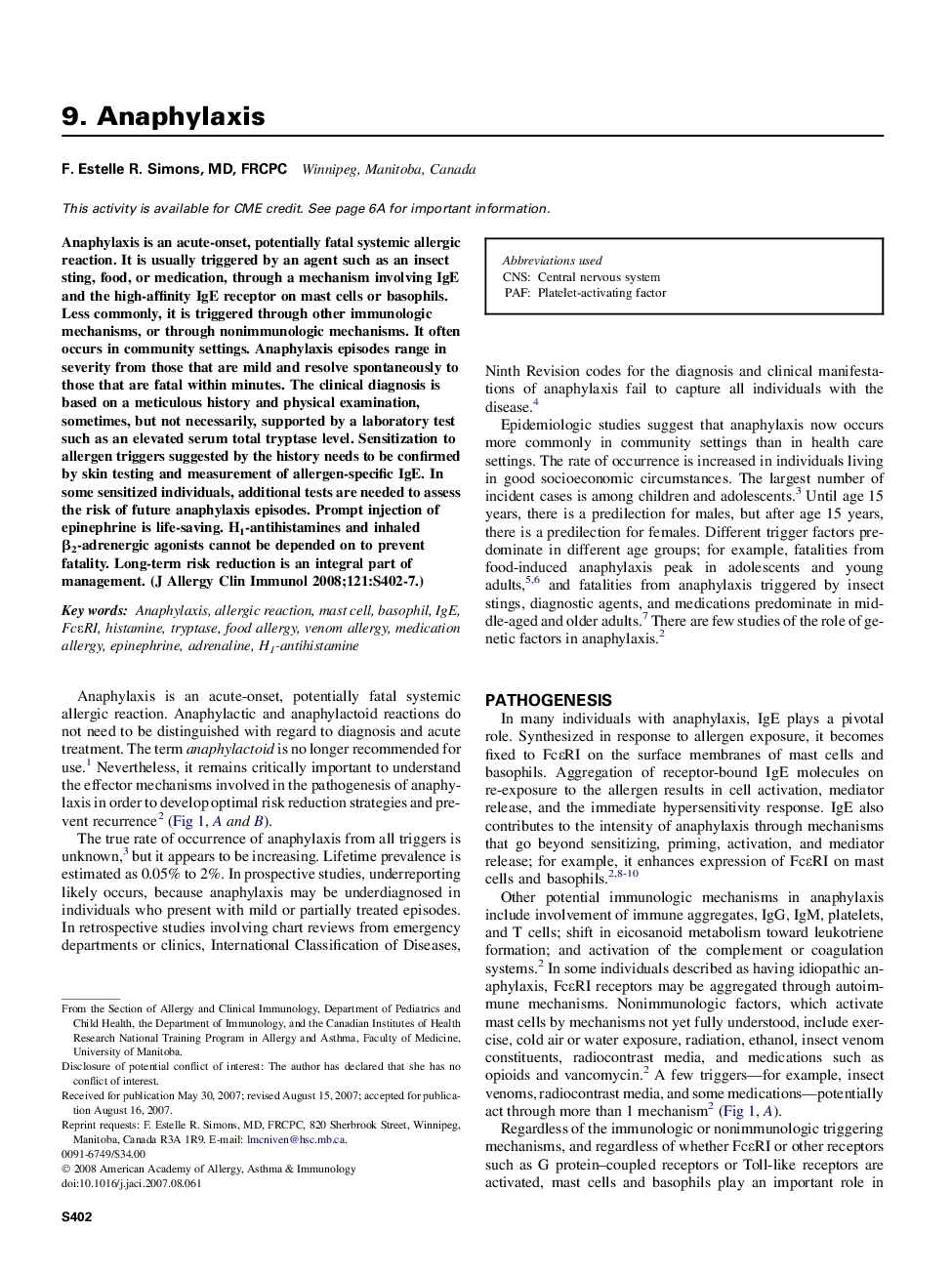| Article ID | Journal | Published Year | Pages | File Type |
|---|---|---|---|---|
| 3202941 | Journal of Allergy and Clinical Immunology | 2008 | 6 Pages |
Anaphylaxis is an acute-onset, potentially fatal systemic allergic reaction. It is usually triggered by an agent such as an insect sting, food, or medication, through a mechanism involving IgE and the high-affinity IgE receptor on mast cells or basophils. Less commonly, it is triggered through other immunologic mechanisms, or through nonimmunologic mechanisms. It often occurs in community settings. Anaphylaxis episodes range in severity from those that are mild and resolve spontaneously to those that are fatal within minutes. The clinical diagnosis is based on a meticulous history and physical examination, sometimes, but not necessarily, supported by a laboratory test such as an elevated serum total tryptase level. Sensitization to allergen triggers suggested by the history needs to be confirmed by skin testing and measurement of allergen-specific IgE. In some sensitized individuals, additional tests are needed to assess the risk of future anaphylaxis episodes. Prompt injection of epinephrine is life-saving. H1-antihistamines and inhaled β2-adrenergic agonists cannot be depended on to prevent fatality. Long-term risk reduction is an integral part of management.
